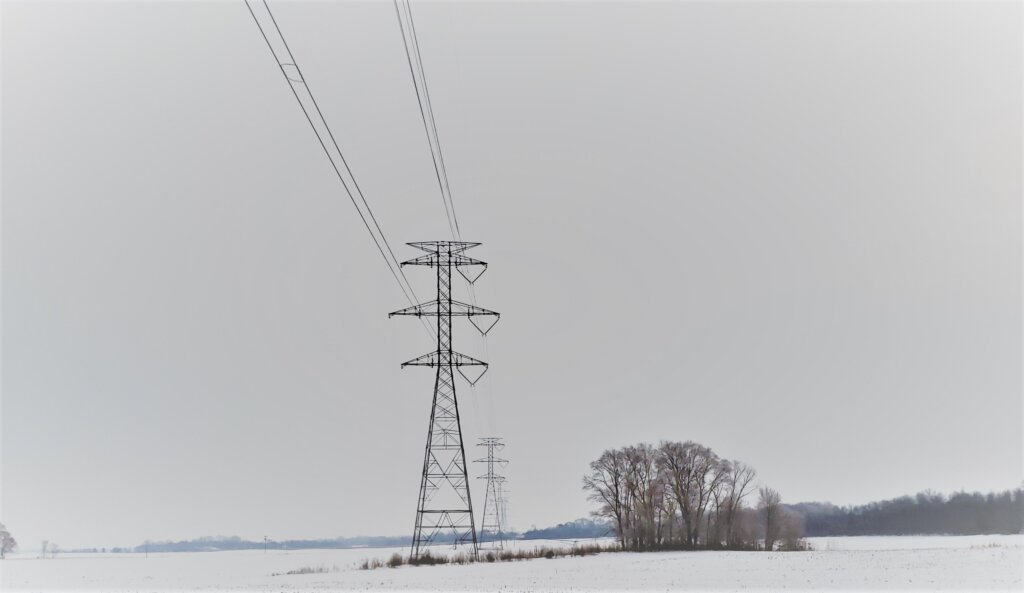
On May 15, 2023, NERC issued a Level 3 Essential Actions Alert to Industry: Cold Weather Preparations for Extreme Weather Events III. The purpose of the alert was to increase readiness and enhance progress towards mitigating risk for future winter weather events on the bulk power system.
The alert was distributed to Reliability Coordinators (RCs), Balancing Authorities (BAs), Transmission Operators (TOPs), and Generator Owners (GOs).
The publicly posted alert informed GOs, TOPs, and BAs of eight essential actions that should be performed and required responses to twenty questions related to the entities’ cold weather preparedness.
On November 6, 2023, NERC published the Findings from Level III Essential Actions for Cold Weather Preparations for Extreme Cold Weather Events Alert, which highlights the key findings from the analysis conducted by NERC staff. The report also provides the next steps NERC will take to address the impacts of cold weather, including the development of cold weather reliability standards.
NERC’s conclusions are summarized below:
- Responses indicated that freezing conditions remain a reliability issue for generators. Some of the recurring concerns included improper heat trace, frozen instrumentation, frozen transmitters, control valves, lack of fuel supply, fuel jelling, blade icing, and breakers tripping caused by low temperature and low air pressure.
- The vast majority of GOs (96 percent) responded that they have calculated, or will expect to calculate, an Extreme Cold Weather Temperature (ECWT) for all owned generation capacity. (ECWT is based on the .2% coldest weather recorded by the National Oceanic Atmospheric Administration in a specific area.)
- A small number of GO’s (62) indicated that most of the capacity that was susceptible to cold weather reliability events during the 2022-2023 winter season was vulnerable to being impacted by the same cause in the 2023-2024 winter season due to known issues that cannot, or will not, be mitigated.
- Approximately 70 percent of both TOPs and BAs expect to have updated operating plans prior to the upcoming 2023-2024 winter season.
Further analysis of data specific to the MRO region shows that the response from GOs was slightly lower than the NERC continent-wide average for ECWT with only 94 percent expecting calculations to be available by the upcoming 2023-2024 winter season. Of larger significance is that a smaller portion of these respondents expect to be able to operate 91 to 100 percent of winter capacity at that ECWT. This is led primarily by the large portion of wind generation in MRO’s regional fleet, with seven percent of GOs having no available capacity at the calculated ECWT. This is not as dramatic across all GOs within MRO’s region as it is with wind turbines, but it was noted in most responses. Thus, at least for the MRO region, the impact of Reliability Standard EOP-012-2 may be higher than NERC projected for the ERO Enterprise.
MRO is using this information to address risks associated with severe cold weather on the regional bulk power system. Most notably, MRO’s Generator Winterization Program (GWP) identifies generator winterization best practices and areas for improvement that are shared with stakeholders across MRO’s regional footprint.
MRO’s annual Regional Winter Assessment (RWA) is another effort to inform stakeholders of projected reliability concerns for the regional bulk power system for the upcoming winter season. This assessment complements NERC’s Winter Reliability Assessment by taking a more granular look at reliability challenges that present a greater risk within MRO’s regional footprint.
The 2023 RWA provides an evaluation of resource and transmission system adequacy needed to meet projected winter peak demands during the winter season.
Additional information can be found at:
Data Submission Worksheet – Cold Weather Level 3
Generator Winterization Program
Reliability Analysis – Assessments
– Max Desruisseaux, MRO Principal Power Systems Engineer and David Kuyper, MRO Power Systems Engineer II